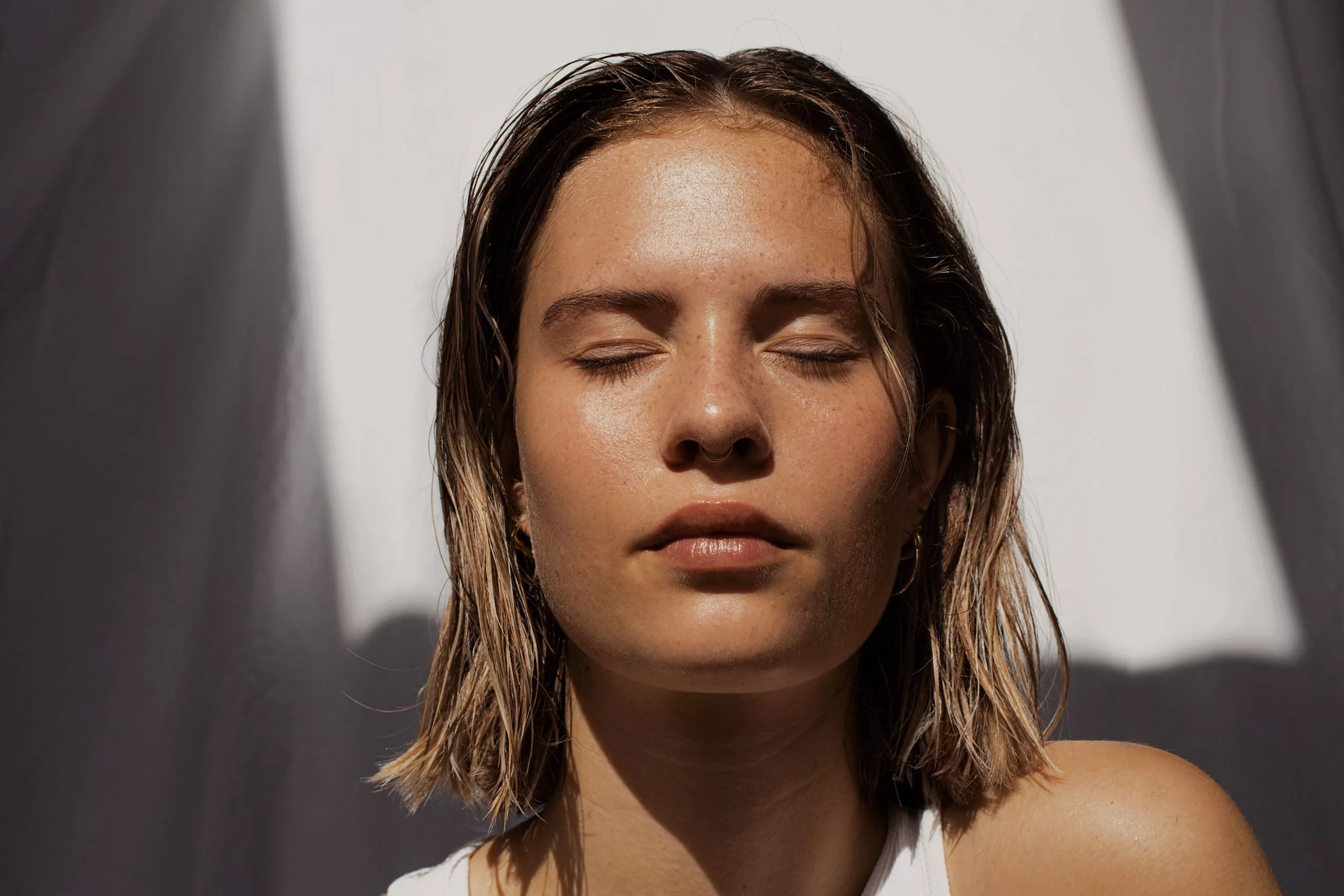If there’s one thing that scientists and beauty experts can agree on, it’s that tanning is out and skin protection is in. The statistics are alarming: according to the Skin Cancer Foundation, just one indoor tanning session before the age of 35 can increase your chance of melanoma skin cancer by 75%. And, the dangers of sun exposure aren’t limited to indoor tanning beds. The EPA estimates that up to 80% of UV rays can penetrate cloud cover.
Wearing sunscreen every day is the only surefire way to help protect your skin from the risk of cancer. The market for sunscreen has exploded in recent years, with tons of options from “clean” products to oil-free formulas and powdered sunscreen.
What is Powdered Sunscreen?
Powdered sunscreen is similar to a setting powder in terms of texture and application. Most powdered sunscreen products come with a retractable brush or a compact that’s super portable and easy to use.
Powdered sunscreens come with different ingredients, but most dermatologists recommend looking for a formulation that is broad-spectrum (e.g., it protects against UVA and UVB rays). You should use something that is at least SPF 30+. “Ingredients to look out for include ceramide 3 and olive glycerides for hydration, as well as antioxidants, vitamin E, and vitamin C for their anti-aging properties and to help fight free radicals,” wrote the experts at Byrdie.
Do Powdered Sunscreens work?
The short answer is yes, powdered sunscreens work — as long as you apply them enough and frequently. Few consumers are aware of what this really means, however.
As this video from chemist Michelle Wong demonstrates, you need a lot of powdered sunscreen to get the right level of protection.
And, like with other sunscreens, you need to reapply powdered sunscreen every two hours (or more often, depending on the product’s instructions).
Should I Rely On Powdered Sunscreen?
It depends! Any sunscreen is better than no sunscreen. It’s also a great option for maintaining your sun protection if you’re out and about. “Powder sunscreens are a better-than-nothing option for reapplying sunscreen over your makeup, and many people will skip reapplying if they don’t have something that works on top of makeup,” wrote Lifehacker.
That said, powdered sunscreen shouldn’t be the first thing you reach for when it comes to sun protection. Use a traditional liquid sunscreen as your main form of sun protection — there are dozens of options available for all skin tones and types.
The last thing to remember is that sunscreen does expire just like other types of skincare. You should throw out your powdered sunscreen if it’s been around for three years or more. The same goes for any tubes of liquid sunscreen you may have lying around — three years is about the shelf life for most SPF products.



